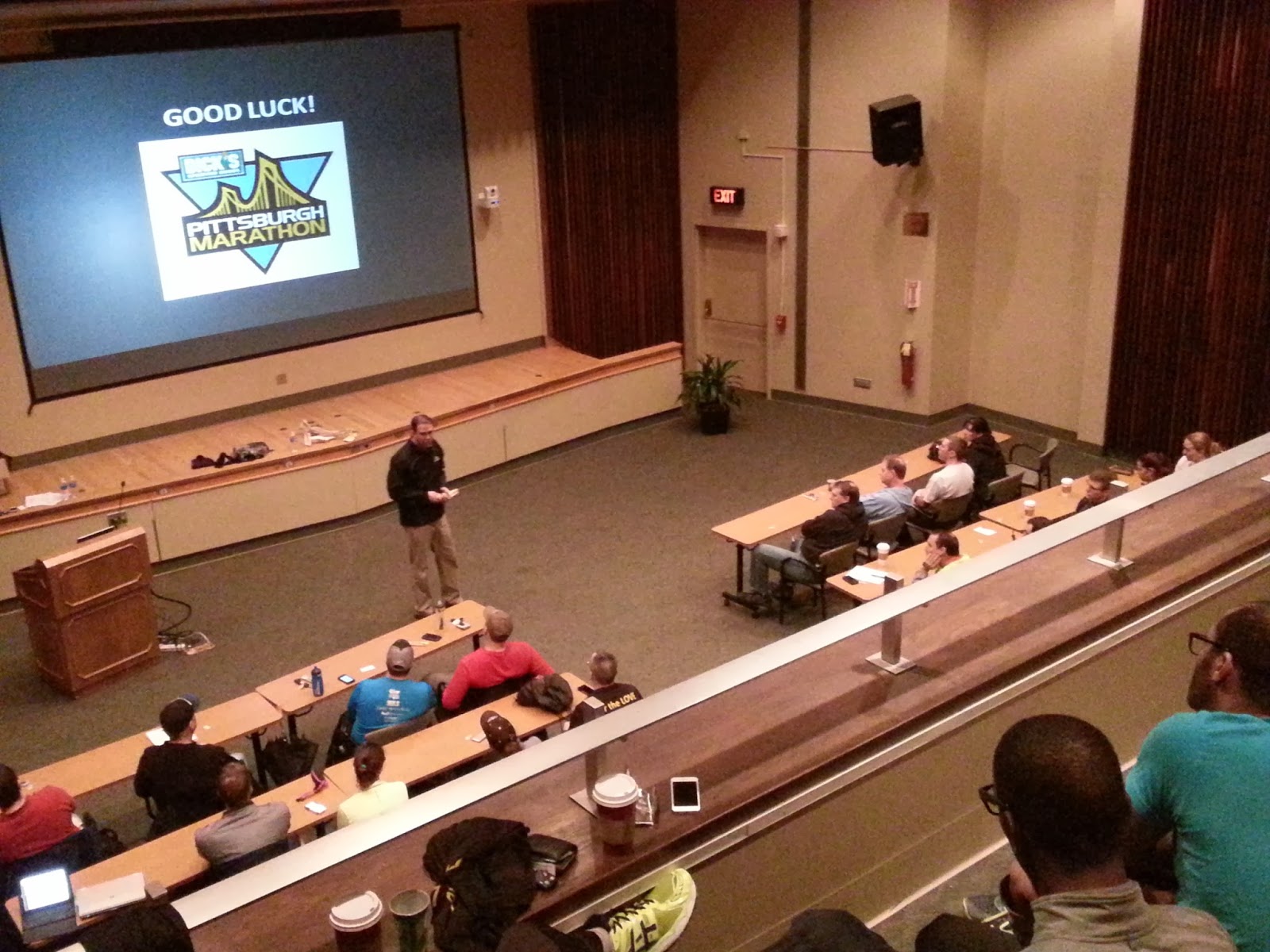 |
| Leslie Bonci |
- Some nutrition mathematics that she offered at a Marathon training seminar one year ago: Drink 20 ounces of water for every hour of exertion, ingest 15 grams of healthy sustenance per hour after a workout’s first hour, and start incorporating these nutrition recommendations soon to be better prepared come race day.
- Some caffeine at times, and some carbs and protein after a workout, are OK for you. But a sugar-free diet? That means no veggies, no fruits, no dairy. . . . It basically leaves meat and potatoes. “You try running a marathon on that! Sugar is glucose. Glucose is glycogen. If we want to think, if we want to run, if we want to do what we want to do, that is important. That doesn’t mean we need to overdose on gummy bears,” she said. “The performance plate – I want you to figure out what’s best for you.” Her suggestion: 1/3 protein, 1/3-1/4 carbs and 1/3 fruit.
Orthopaedic surgeon Vonda Wright, M.D., a mobility expert who also directs the Performance and Research Initiative for Masters Athletes (PRIMA), stressed cross-training for the total body athlete. It makes the difference in being dragged across the finish line, huffing through it or maximizing your performance.
 |
| Vonda Wright |
Dr. Wright’s suggestions included such exercises as toe walking, heel walking, hip swings, activators for ankles, knees, butt, quads and core. Specifically, she offered a total-body circuit that she uses in her couch-to-race classes and more: pushups (22 for men, 11 for women; elbows bent and close to the body); planking (two minutes at a time is best), kettlebell raises; and a monster walk with an elastic band around the shins.
“It really builds frame around that engine,” she said of cross-training, which she recommended for two days each week – even before a run.









